A common feature of almost every town along the French Riviera is its unique ability to captivate visitors, and the city you’ll discover in this article is no different.
Aix-en-Provence, located 30 km north of Marseille, is the former capital of Provence. The history of this city dates back to Roman times, and while not much from that era has survived into modernity, it remains one of the most significant places on the map of the French Riviera. You can start your exploration traditionally with the old town or follow the Paul Cézanne trail, whose legacy is evident throughout the city. In this article, we’ll begin with just that.
Cultural Attractions in Aix-en-Provence
Aix-en-Provence is a paradise for lovers of culture and art. The former capital of Provence is the birthplace and final resting place of Paul Cézanne, one of the most famous French Post-Impressionists. Art enthusiasts are encouraged to visit Atelier de Cézanne – the painter’s former studio at 9 Avenue Paul Cézanne, which now serves as a museum. It was here that some of his most renowned works, including The Large Bathers (Les grandes baigneuses), Mont Sainte-Victoire, and The Pyramid of Skulls (Pyramide de crânes), were created.
WORTH KNOWING: Apart from Paul Cézanne, other notable artists associated with Aix-en-Provence include Emil Zola and Marcel Pagnol.
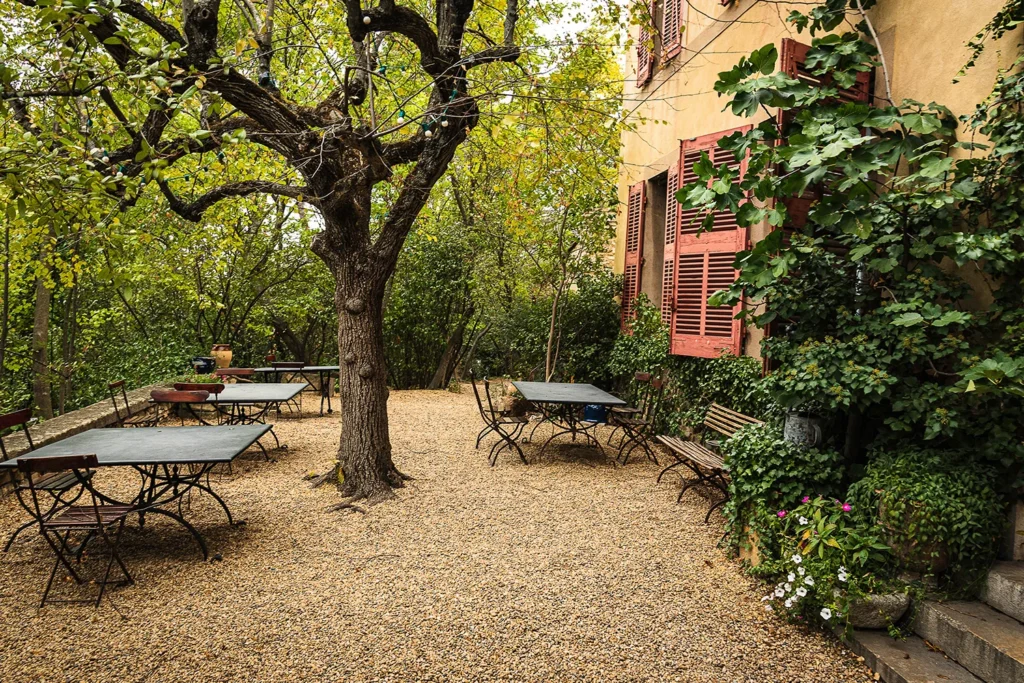
Another cultural landmark of Aix-en-Provence is the Musée Granet. The museum’s collection is displayed in two separate buildings. At Place Saint-Jean de Malte, in the former headquarters of the Knights of Malta, you can admire a vast collection ranging from antiquity to the 20th century, featuring nearly 600 paintings and sculptures. Meanwhile, at Place Jean-Boyer, you’ll find the Musée Granet XXe, which houses 20th-century art, with a focus on Impressionists and Post-Impressionists. As an additional incentive to see the full museum collection, it includes works by renowned artists such as Picasso, van Gogh, van Dyck, Rembrandt, Cézanne, Renoir, Monet, and Degas.
Old Town Aix-en-Provence and the Cours Mirabeau Promenade
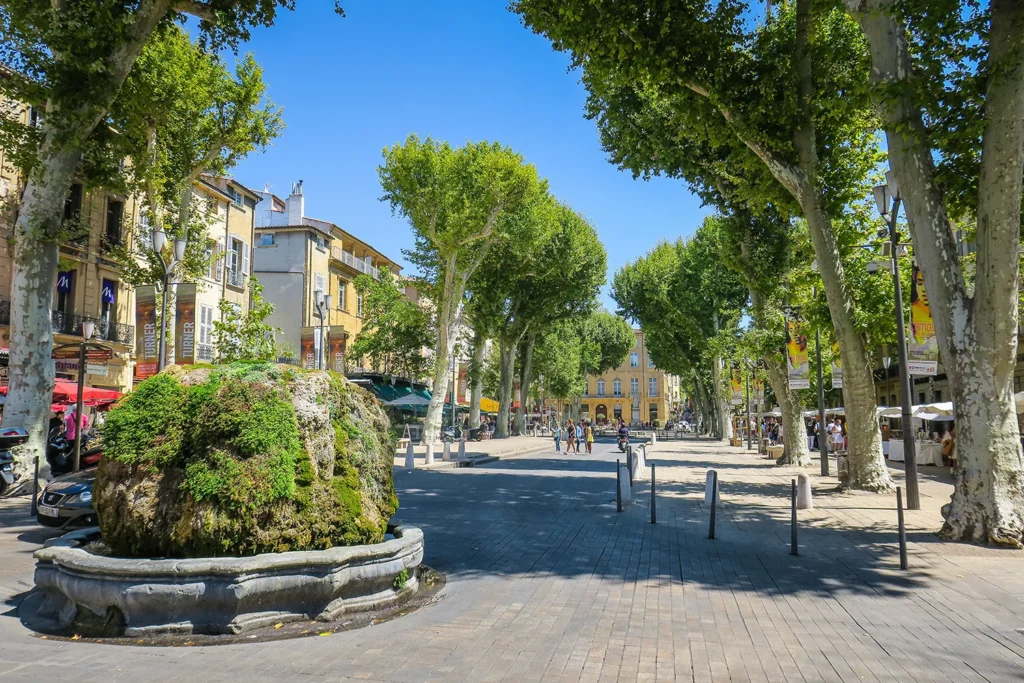
It’s hard to imagine Aix-en-Provence without its Old Town. For many, wandering the narrow streets of the historic center is the main reason to visit this former capital of Provence. You can start your stroll at Cours Mirabeau—a beautiful, wide, tree-lined boulevard shaded by plane trees, beginning at the Fontaine de la Rotonde. Fountains, in fact, are another defining architectural feature of Aix-en-Provence, so don’t be surprised if you come across several as you explore the Old Town. It’s no coincidence that Aix-en-Provence is often referred to as “the city of a hundred fountains.”
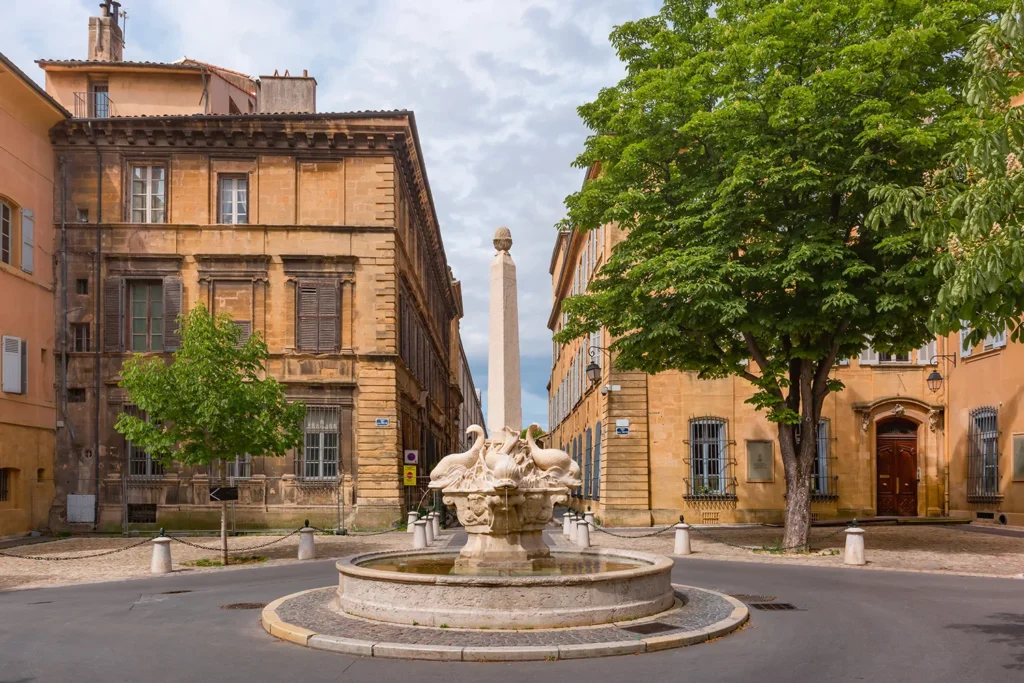
Both sides of the old town promenade are lined with charming 17th- and 18th-century townhouses, adding to the allure of Cours Mirabeau. This boulevard is also an excellent spot to grab a bite, as it is dotted with numerous interesting restaurants, cafés, and shops. Speaking of shopping, it’s worth noting that on certain days, Cours Mirabeau hosts traditional Provençal markets. These markets offer a great opportunity to hunt for original souvenirs from local artisans.
Exploring Aix-en-Provence’s Old Town wouldn’t be complete without a visit to Place de l’Hôtel de Ville. Here, you can admire the historic Town Hall and the 17th-century astronomical clock tower. This picturesque square is also filled with delightful cafés, enhancing the charming atmosphere of the old town.
The Mazarin District
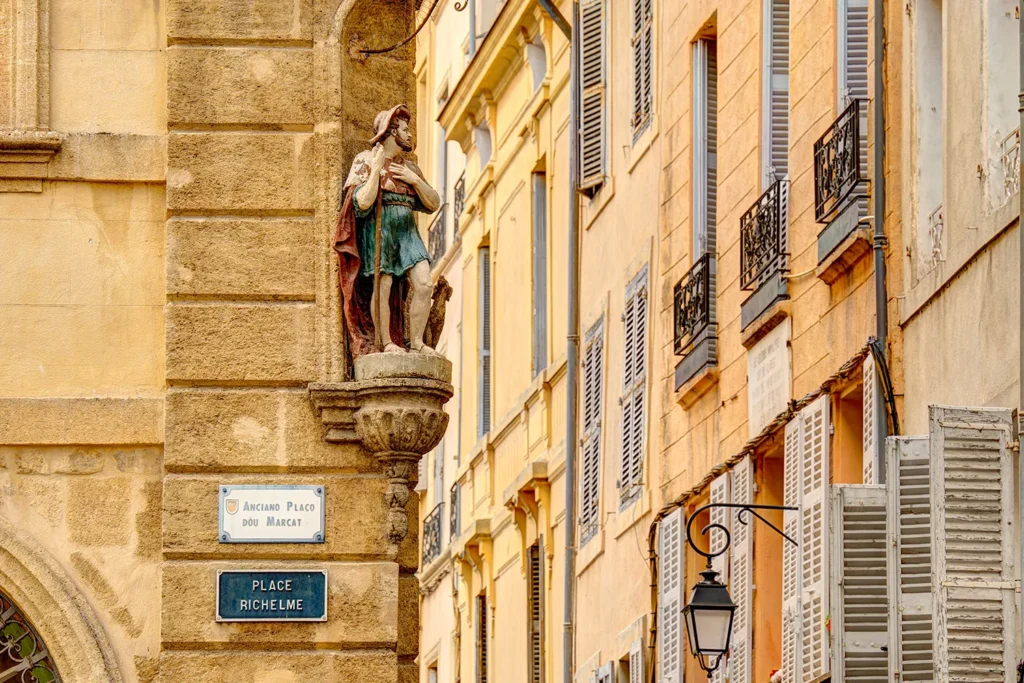
Another highlight of Aix-en-Provence is the Mazarin District, part of the old town known for its refined architecture. The area is a showcase of elegant design and home to many stylish restaurants and boutiques, making it a popular destination for tourists.
Saint-Sauveur Cathedral
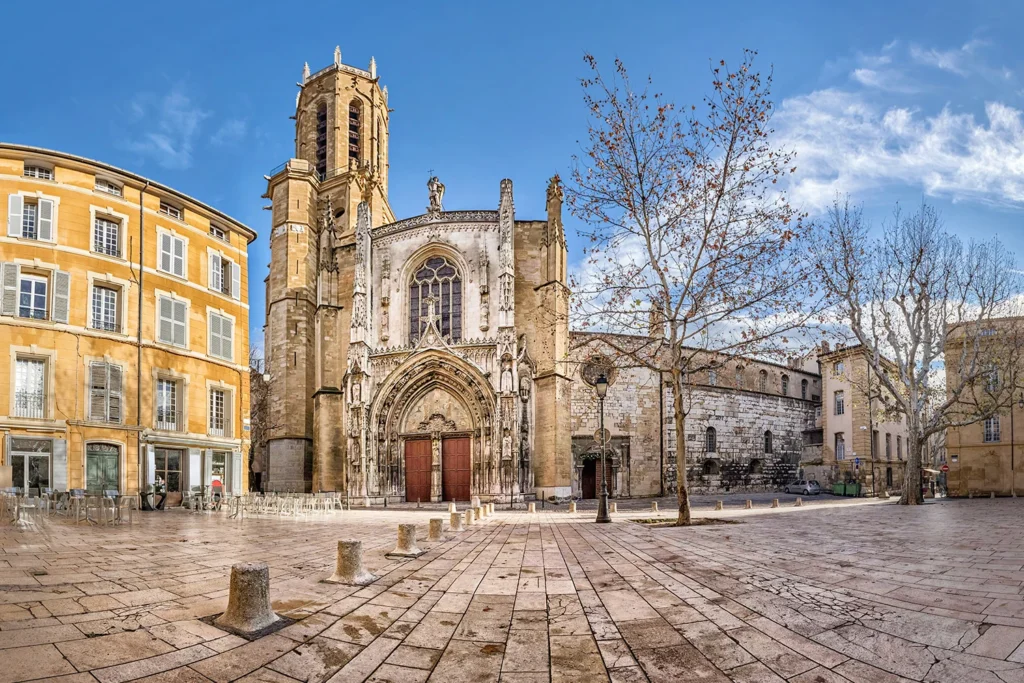
The most recognizable religious landmark in Aix-en-Provence is the Saint-Sauveur Cathedral. According to legend, the site once housed a Roman forum, and the cathedral itself was built on the ruins of an ancient Temple of Apollo. The first Christian church was established here as early as the 5th century, though it underwent multiple reconstructions over the centuries, resulting in a blend of architectural styles. Visitors can observe Romanesque, Gothic, and Baroque influences throughout the structure.
Of particular note are the beautiful walnut wood doors, intricately carved by the brothers Raymond and Jean Bolhit, along with Jean Guiramand. Other highlights include the baptismal font, baptistery, and the famous triptych, the “Burning Bush Altarpiece” by Nicolas Froment.
What to Visit Near Aix-en-Provence?
If you’re using Aix-en-Provence as a base for day trips, you’re in luck. A top destination should undoubtedly be Marseille, one of the largest cities on the French Riviera. Thanks to its size, rich history, and coastal location, Marseille offers a wealth of attractions. For those looking for smaller towns near Aix-en-Provence, consider visiting Pertuis, Saint-Maximin-la-Sainte-Baume, Vitrolles, or Cassis. Each of these destinations has its unique charm and provides excellent opportunities for day trips.

Heading west from Aix-en-Provence, it’s worth stopping by the majestic and well-preserved 19th-century Roquefavour Aqueduct. If you’re looking to escape civilization for a bit and spend time in nature, make sure to visit the Calanques National Park, which is an ideal spot for trekking and long hikes. You could also take a day trip to the Verdon Gorge, located just an hour’s drive from Aix-en-Provence. Additionally, if you’re visiting Provence between mid-June and the end of July, don’t miss the chance to see the lavender fields, which are in full bloom during that period.
Each of these short trips is easiest to organize if you have access to a car. Exploring Provence and the French Riviera this way gives you the flexibility to discover even more beautiful spots, of which there is no shortage in southern France. If you don’t have your own vehicle, consider renting one through services like RentalCars to make the most of your journey.